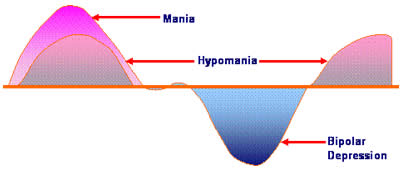 BIG WOW! I got a new computer and I'm back online ...
BIG WOW! I got a new computer and I'm back online ...But my home broadband doesn't work so I'm reduced to traipsing back and forth down the local library.
BUT GLEDWOOD'S BACK! WOW!!!
 BIG WOW! I got a new computer and I'm back online ...
BIG WOW! I got a new computer and I'm back online ... Did anybody see the bipolar documentary on Channel 4 last week? They showcased 3 sufferers. Paul, who was in the luscious grip of psychotic mania, a Welsh lady called Siân who had "bipolar 2" the supposedly "mild" type (it just means you don't hear things or see things or get delusional on the manic phases, which are labelled "hypomania" meaning "below mania". Lastly we saw Ashley, who was pingponging rapidly between "hypomanic" and "depressive" symptoms.
Did anybody see the bipolar documentary on Channel 4 last week? They showcased 3 sufferers. Paul, who was in the luscious grip of psychotic mania, a Welsh lady called Siân who had "bipolar 2" the supposedly "mild" type (it just means you don't hear things or see things or get delusional on the manic phases, which are labelled "hypomania" meaning "below mania". Lastly we saw Ashley, who was pingponging rapidly between "hypomanic" and "depressive" symptoms. Philippa Perry, the psychotherapist who presented the show, said she believed the term "bipolar" to be a little too wide to encompass all that's crammed under its gargantuan roof these days and I agree. Ashley to me seemed more like a borderline personality disorder case than truly bipolar. True bipolar swings aren't usually triggered by comments a person might make. In fact when you're being really bipolar you can often feel totally insulated from other people's shit all together.
Philippa Perry, the psychotherapist who presented the show, said she believed the term "bipolar" to be a little too wide to encompass all that's crammed under its gargantuan roof these days and I agree. Ashley to me seemed more like a borderline personality disorder case than truly bipolar. True bipolar swings aren't usually triggered by comments a person might make. In fact when you're being really bipolar you can often feel totally insulated from other people's shit all together. In the 1980s, when I was a teenager, I remember the term "manic depressive" being used amongst ordinary non-medical folks to denote a person who was (or had been) extremely depressed. The concept of pathologically elevated moods was quite alien to the public consciousness back then. Perhaps the younger and more chemically "enhanced" or "altered" generations have more experience of their own mood elevations to be able more easily to sympathize with maniacs and hypomaniacs... I don't know. But going back to "manic depressives"... the big irony is that all the worst cases of depression I've known or known of were without exception people with ordinary "unipolar" depression (ie these people had never in their lives been hypo/manic). Bipolar CAN involve episodes of extremely intense depression. The difference between "unipolar" and "bipolar" depression is said to be that bipolar depression tends to be shorter-lasting and when it does go away the person isn't necessarily "well"... they could well be on the way up to mania.
In the 1980s, when I was a teenager, I remember the term "manic depressive" being used amongst ordinary non-medical folks to denote a person who was (or had been) extremely depressed. The concept of pathologically elevated moods was quite alien to the public consciousness back then. Perhaps the younger and more chemically "enhanced" or "altered" generations have more experience of their own mood elevations to be able more easily to sympathize with maniacs and hypomaniacs... I don't know. But going back to "manic depressives"... the big irony is that all the worst cases of depression I've known or known of were without exception people with ordinary "unipolar" depression (ie these people had never in their lives been hypo/manic). Bipolar CAN involve episodes of extremely intense depression. The difference between "unipolar" and "bipolar" depression is said to be that bipolar depression tends to be shorter-lasting and when it does go away the person isn't necessarily "well"... they could well be on the way up to mania.